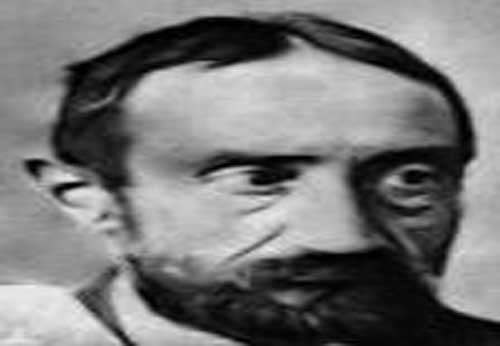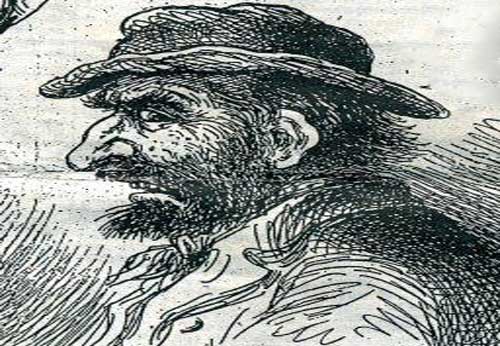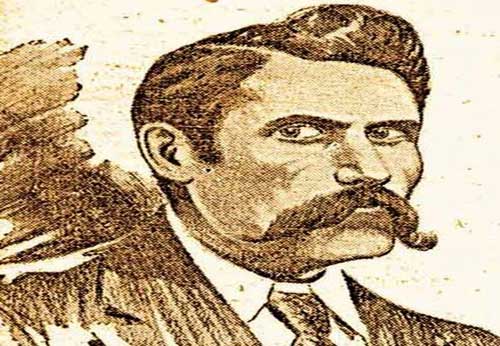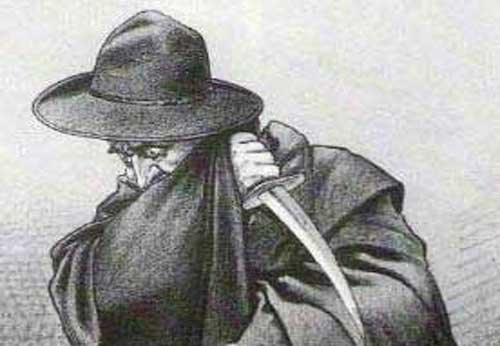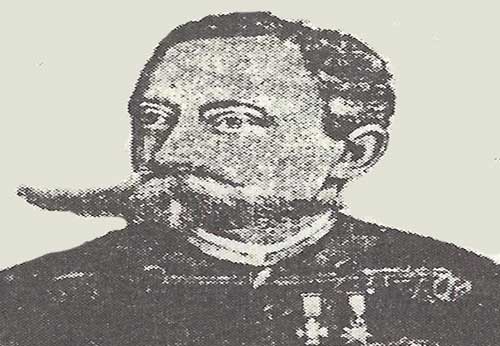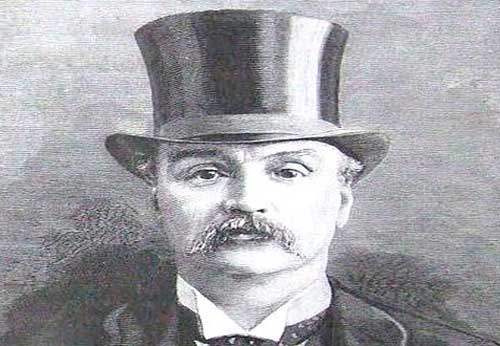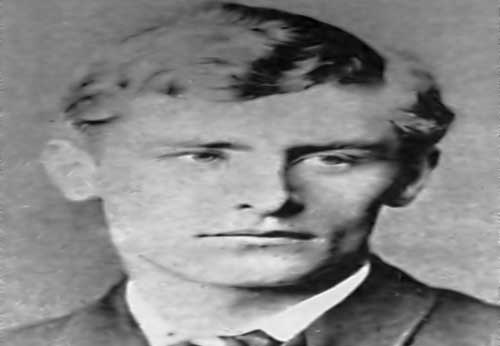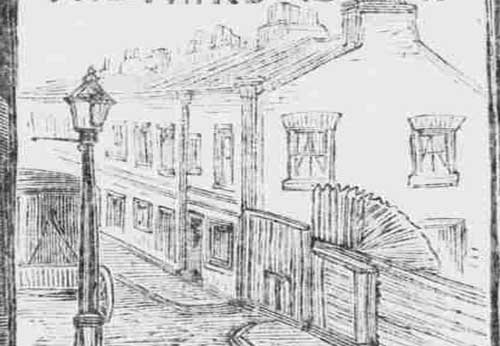- Montague John Druitt was a barrister and school teacher who committed suicide towards the end of 1888.
- His body was found floating in the Thames at Chiswick on 31st December, 1888.
- His was one of three names listed by Melville Macnaghten on his 1894 Memoranda.
- Site Author and Publisher Richard Jones
- Richard Jones
MONTAGUE JOHN DRUITT
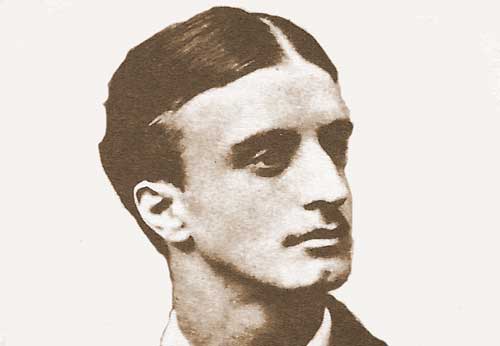
MACNAGHTEN'S FAVOURED SUSPECT
Montague John Druitt (1857 - 1888) was the favoured suspect of Melville Macnaghten. Druitt worked as a barrister and supplemented his income at the bar by working as an assistant schoolmaster at a boarding school in Blackheath, South east London, that was run by Mr. George Valentine.
In his Memoranda Macnaghten lists three suspects whom, he claims, were far more likely than Thomas Cutbush to have been Jack the Ripper.
Top of that list is "A Mr. M. J. Druitt" who Macnaghten describes as having been a:-
...a doctor of about 41 years of age and of fairly good family, who disappeared at the time of the Miller's Court murder, and whose body was found floating in the Thames on 31st December: i.e. 7 weeks after the said murder. The body was said to have been in the water for a month, or more…From private information I have little doubt but that his own family suspected this man of being the Whitechapel murderer, it was alleged that he was sexually insane.”
DRUITT'S SUICIDE - NOVEMBER 1888
At the end of November 1888, for reasons that have never been satisfactorily established, Druitt was suddenly dismissed from the school.
A month later, on December 31st 1888, his body was found floating in the Thames at Chiswick. It had been in the river for some time.
On 5th January 1889 the Acton, Chiswick, and Turnham Green Gazette reported on the inquest into Druitt's death, and quoted the testimony of his brother:-
William H. Druitt said he lived at Bournemouth, and that he was a solicitor. The deceased was his brother, who was 31 last birthday. He was a barrister-at-law, and an assistant master in a school at Blackheath. He had stayed with witness at Bournemouth for a night towards the end of October. Witness heard from a friend on the 11th of December that deceased had not been heard of at his chambers for more than a week. Witness then went to London to make inquiries, and at Blackheath he found that deceased had got into serious trouble at the school, and had been dismissed. That was on the 30th of December. Witness had deceased's things searched where he resided, and found a paper addressed to him (produced). The Coroner read the letter, which was to this effect: - "Since Friday I felt I was going to be like mother, and the best thing for me was to die." Witness, continuing, said deceased had never made any attempt on his life before. His mother became insane in July last. He had no other relative.”
The jury at the inquest into his death duly returned a verdict of suicide by drowning "whilst of unsound mind."
Druitt's body was returned to his family for burial and his name would have no doubt now be long forgotten had Macnaghten not written his memorandum and named him as his favoured suspect in the hunt for the Whitechapel murderer.
WHY WAS HE A SUSPECT?
On the face of it, Druitt makes a strong suspect for the mantle of jack the Ripper and the fact that Melville Macnaghten favoured him as a suspect most certainly makes the case against him a compelling one.
Furthermore, the timing of his suicide would explain why the murders ceased after Mary Kelly was found dead in Miller's Court.
Then, of course, there is Macnaghten's assertion that Druitt's own family believed him to have been the ripper.
On the strength of this, seemingly strong evidence against him, there is a great temptation to declare the Jack the Ripper case closed with the death of Montague John Druitt. Indeed, for many years, many historians believed that to be the case and Druitt was the suspect of choice to many Ripperologists.
HOWEVER.....
But, on closer inspection the case against Druitt begins to fall apart.
Macnaghten Makes several fundamental errors in the information he provides about Druitt.
Firstly, he is ten years out with regards Druitt's age, as Druitt was, in fact 31 not 41 when he died.
Secondly, although several of his family members were doctors, Druitt emphatically wasn't. Macnaghten's statement that:-
The murderer's brain gave way altogether after his awful glut in Miller's Court, and that he immediately committed suicide..."
Most certainly did not apply to Montague John Druitt.
Indeed, his mind was sound enough in the days that followed the murder of Mary Kelly for him to be actively pursing his career as a barrister.
Furthermore he continued to work as a teacher at Valentines School until his dismissal at the end of November, some three weeks after the death of Mary Kelly.
Since he probably committed suicide around that time it would seem likely that he killed himself in reaction to his dismissal.
The most compelling evidence for Druitt's guilt is most certainly the fact that his own family apparently believed him to have been the murderer.
But, on closer inspection even this claim does not stand up to close scrutiny as it appears to be based on hearsay as opposed to hard evidence.
Macnaghten doesn't say that Druitt's family had any concrete proof that he was the ripper, but only states that they had their suspicions about him.
Those suspicions weren't necessarily correct. Furthermore, Macnaghten, apparently, didn't hear of their suspicions directly from the family but, to quote his own words:-
...from private information I have little doubt that his family believed him to be the ripper...”
This private information may, therefore, have been little more than third hand hearsay.
INSPECTOR ABBERLINE DIDN'T SUSPECT HIM
The biggest objection to Druitt as a viable suspect is that Inspector Abberline most certainly didn't think he could have been the Ripper.
In an interview with the Pall Mall Gazette in 1903, Abberline is quoted as saying:-
I know all about that story. But what does it amount to? Simply this. Soon after the last murder in Whitechapel the body of a young doctor was found in the Thames, but there is absolutely nothing beyond the fact that he was found at that time to incriminate him. ”
NO KNOWN CONNECTION WITH WHITECHAPEL
Finally, nothing that is known about Druitt suggests that he ever visited Whitechapel nor that he had any knowledge of the area.
As a result of Macnaghten’s suspicions Druitt is high up on the list of Ripper suspects.
Yet the case against him is dependent on Macnaghten possessing more information than he wished to reveal, and which he claimed to have destroyed so as not to cause uproar.
Montague John Druitt may have been Jack the Ripper. But equally he may have simply been a tragic figure who, in taking his own life at around the time that the murders ended, ensured that his name came to the attention of the police as they desperately sought a solution to the fate of the Whitechapel Murderer.

